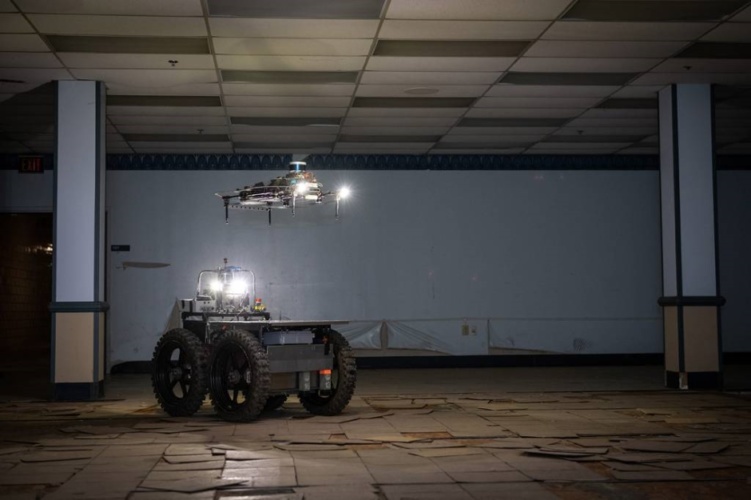
The challenge, one of four that makes up the biennial competition, will require robots to collaborate autonomously and carry out a series of urban firefighting related tasks.
Modular robots being developed to navigate tunnels and caves
A group of Carnegie Mellon University (CMU) students and faculty will be among 30 teams from around the world taking part in the competition between February 23–25, 2020.
"The competition includes a nice suite of forward-looking applications," said Oliver Kroemer, co-leader of CMU’s Tartan team and an assistant professor in CMU’s Robotics Institute. The firefighting challenge, for instance, will use drones and ground-based robots to detect and extinguish high-rise fires.
Other challenges include a construction scenario in which robot teams place large blocks in a row. In another, addressing the threat of drones flying too close to airports and military installations, teams will use their drones to track and intercept aerial targets.
The Tartan team includes a number of students enrolled in the Robotics Institute’s master’s program in systems development, as well as undergraduates from the University of Pittsburgh. Kroemer and eight of the students will make the trip to the competition, which is organised and hosted by Khalifa University of Science and Technology in Abu Dhabi.
"These finalists represent top internationally renowned academic and research institutions with well-established robotics labs, and we believe MBZIRC 2020 will showcase the creative best in robotics and stand testimony to its reputation as a leading global competition," said Arif Sultan Al Hammadi, executive vice president of Khalifa University.
One of the attractions of the MBZIRC competition is that tackling the tasks in each challenge requires that teams build systems, Kroemer said.
"Plus, there’s just the fun factor," he added. "Students enjoy the competition."
Though the Tartans will field one ground robot, the competition relies heavily on drones. The robots will operate autonomously during the competition, with teams losing points if people need to intervene.
Individual competitions will occur for each of the three challenges at MBZIRC— drone safety, construction and firefighting — as well as a grand challenge that is a triathlon encompassing all of the three individual challenges. Winners of each individual challenge will receive a prize of one million UAE dirhams, equivalent to about $270,000. The grand challenge winner receives two million dirhams.
Some of the world’s top academic robotics programs will be represented at the three-day competition, among them Georgia Tech, Virginia Tech, Korea Advanced Institute of Science and Technology, China’s Tsinghua University, and the University of Tokyo. Teams that were champions at MBZIRC 2017, including the University of Bonn, University of Pennsylvania and Beijing University of Technology, will compete again.




Swiss geoengineering start-up targets methane removal
No mention whatsoever about the effect of increased methane levels/iron chloride in the ocean on the pH and chemical properties of the ocean - are we...